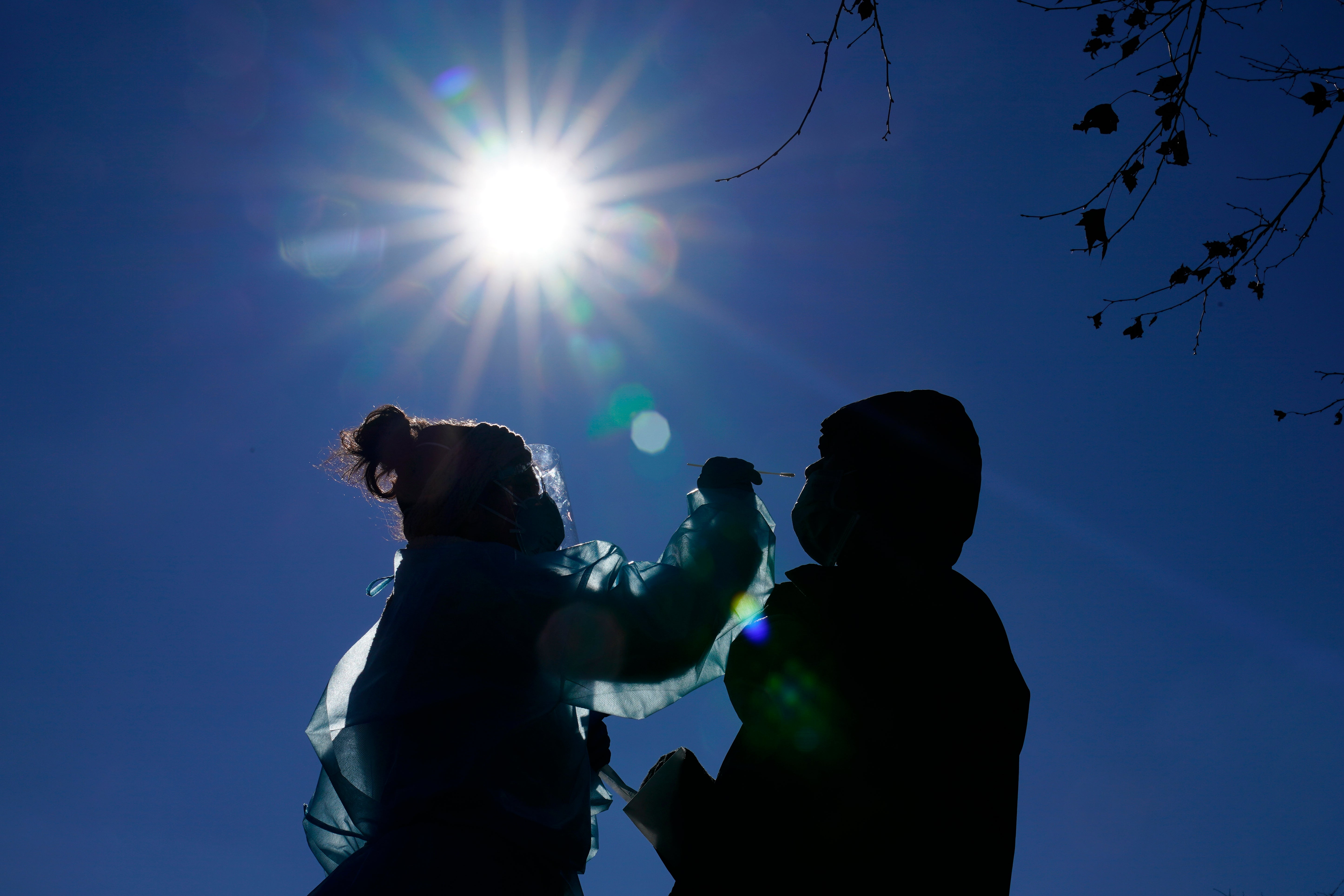Coverage of virus, racial reckoning win DuPont awards
The Alfred I

Your support helps us to tell the story
From reproductive rights to climate change to Big Tech, The Independent is on the ground when the story is developing. Whether it's investigating the financials of Elon Musk's pro-Trump PAC or producing our latest documentary, 'The A Word', which shines a light on the American women fighting for reproductive rights, we know how important it is to parse out the facts from the messaging.
At such a critical moment in US history, we need reporters on the ground. Your donation allows us to keep sending journalists to speak to both sides of the story.
The Independent is trusted by Americans across the entire political spectrum. And unlike many other quality news outlets, we choose not to lock Americans out of our reporting and analysis with paywalls. We believe quality journalism should be available to everyone, paid for by those who can afford it.
Your support makes all the difference.Reporting on the coronavirus pandemic the police killing of George Floyd, climate change and other issues — from Syria's civil war to the Cold War-era space race — won the Alfred I. duPont-Columbia University Awards for 2021, the university's Graduate School of Journalism announced Tuesday.
PBS’ “Nova” and New York’s WNBC-TV won for coverage of the pandemic, while KSTP-TV of Minneapolis/St. Paul was recognized for its coverage of Floyd’s death and the protests that followed.
The Washington Post was honored for its digital reconstruction of another point in the demonstrations that built into a racial reckoning around the U.S.: the forceful clearing of peaceful protesters from Washington’s Lafayette Square before then-President Donald Trump walked across it to pose with a Bible in front of a church.
WNYC Studios’ podcast “Radiolab” and production company OSM Audio were honored for an episode on how Mississippi arrived in late June at a decision to retire its state flag, the last in the U.S. to include the Confederate battle emblem. The award was one of two for “Radiolab” and three for podcasts.
In a year when the pandemic is still shaping the news and lives across the globe, the winners were honored virtually in a presentation on PBS digital platforms Tuesday night, with CNN anchor Anderson Cooper and Washington Post columnist and former NPR co-host Michele Norris hosting. Presenters included Dr. Anthony Fauci, the U.S. government’s top infectious disease expert.
The prizes, dating to 1942, recognize broadcast, cable, online, documentary and streaming journalism.
“Courageously documenting the turbulent events of 2020, journalists performed a critical public service by reporting on the COVID-19 pandemic, social justice, the role of the internet in our politics and much more,” said Cheryl Gould, the awards jury chair and a former NBC News executive.
Coverage of mental health took two prizes, with wins for NBC News Digital's reporting on police interactions with the mentally ill, and Upper East Films' documentary about a psychiatric emergency room.
An unusual take on reporting on climate change — taking a skeptic to meet with scientists and see evidence of global warming in Alaska — won an award for WFAA-TV Dallas.
Also honored were:
— PBS' “American Experience” for looking back at the space race between the U.S. and the Soviet Union.
— PBS' “Frontline” for taking viewers inside makeshift hospitals in civil war-torn Syria.
— “Radiolab,” in a second win, for reporter Latif Nasser's exploration of the war on terror through the case of a Guantanamo Bay detainee who shares his name.
— “Radiotopia,” from the public radio and podcast platform PRX, for a series about life inside California's San Quentin prison.
— Showtime's “Vice,” for reporting on the Indian government's treatment of the country's Muslim population.
— KING 5 News Seattle, for looking at the right to die through the eyes of a terminally ill cancer patient.
— Netflix, for “Crip Camp,” a film about a summer camp for disabled youths and the rise of disability rights activism in the 1970s.